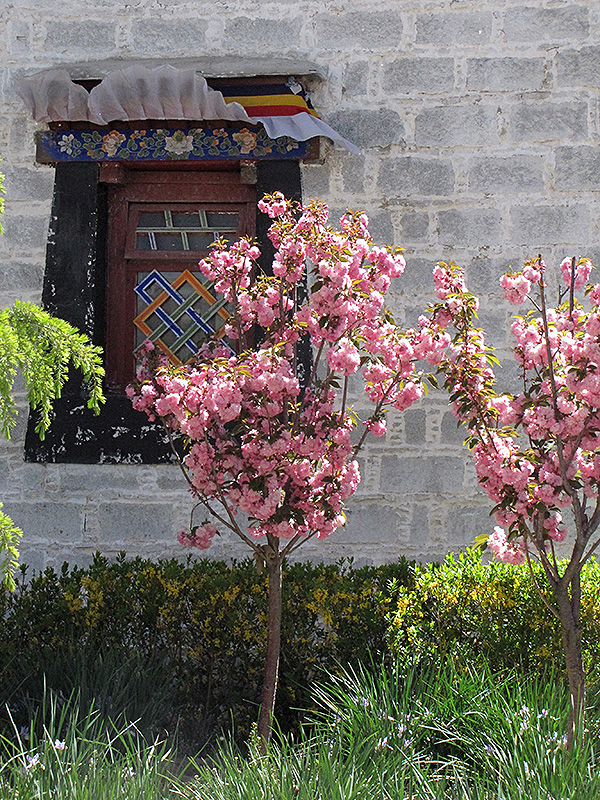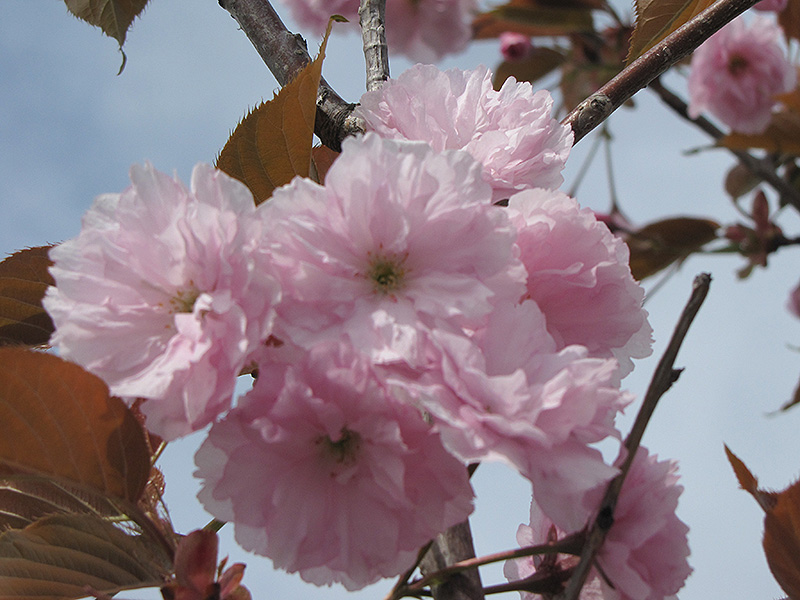Plant Finder
* This is a "special order" plant - contact store for details
Height: 25 feet
Spread: 20 feet
Sunlight:
![]()
Hardiness Zone: 5a
Other Names: Oriental Cherry, East Asian Cherry, Hill Cherry
Description:
An upright, vase to rounded shaped tree, blanketed in a froth of luscious double pink flowers that mature to white, in spring before the leaves; attractive bark in winter; an exceptional accent choice for the smaller landscape
Ornamental Features
Japanese Flowering Cherry is blanketed in stunning clusters of fragrant double shell pink flowers with white overtones along the branches in mid spring, which emerge from distinctive rose flower buds before the leaves. It has dark green deciduous foliage which emerges coppery-bronze in spring. The pointy leaves turn an outstanding coppery-bronze in the fall. The smooth dark red bark adds an interesting dimension to the landscape.
Landscape Attributes
Japanese Flowering Cherry is a deciduous tree with an upright spreading habit of growth. Its average texture blends into the landscape, but can be balanced by one or two finer or coarser trees or shrubs for an effective composition.
This is a relatively low maintenance tree, and is best pruned in late winter once the threat of extreme cold has passed. It is a good choice for attracting birds to your yard. It has no significant negative characteristics.
Japanese Flowering Cherry is recommended for the following landscape applications;
- Accent
- Shade
Planting & Growing
Japanese Flowering Cherry will grow to be about 25 feet tall at maturity, with a spread of 20 feet. It has a low canopy with a typical clearance of 4 feet from the ground, and is suitable for planting under power lines. It grows at a medium rate, and under ideal conditions can be expected to live for 50 years or more.
This tree should only be grown in full sunlight. It does best in average to evenly moist conditions, but will not tolerate standing water. It is not particular as to soil pH, but grows best in rich soils. It is highly tolerant of urban pollution and will even thrive in inner city environments. This species is not originally from North America.
* This is a "special order" plant - contact store for details

